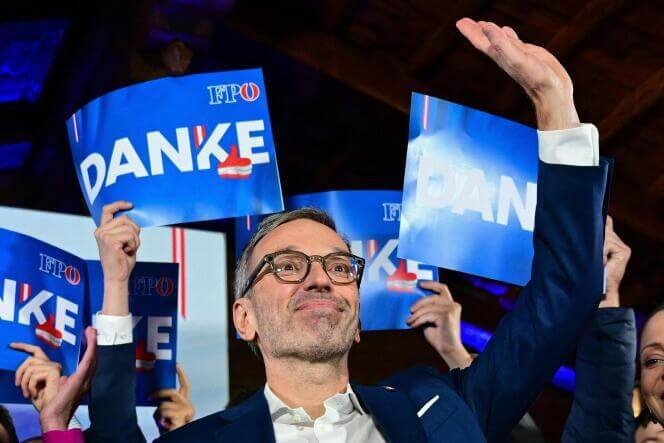Austria’s far-right Freedom Party (FPÖ), led by Herbert Kickl, has secured a historic election victory, winning 29.2% of the vote. This marks a significant shift in Austria’s political landscape and the latest in a string of far-right election successes in Europe.
Kickl’s party emerged nearly three points ahead of the conservative People’s Party (ÖVP), which garnered 26.5% of the vote. However, the FPÖ fell short of a majority, securing 56 seats in the 183-seat parliament. The Social Democrats trailed behind with 41 seats.
The election centered on migration, asylum, economic concerns, and the war in Ukraine, drawing a high turnout of 74.9%. Voters aged 35-59 and slightly more women than men backed the far-right party.
Kickl’s victory speech emphasized “optimism, courage, and trust” in delivering a “piece of history.” He has pledged to build “Fortress Austria,” restoring security, prosperity, and peace, and has aligned himself with Hungary’s Viktor Orban.
Austria’s Far-Right Surge, mirrored in other European countries, raises concerns about the continent’s political direction. Italy’s Giorgia Meloni and Germany’s AfD have also made significant gains. The FPÖ’s win may prove challenging to translate into a governing coalition, given the ÖVP’s refusal to partner with Kickl.
Forming a coalition will be complicated for Kickl, a divisive figure. The Social Democrats, Greens, and Neos have ruled out partnerships with the far-right party. President Alexander Van der Bellen has expressed reservations about the FPÖ’s EU criticism and failure to condemn Russia’s Ukraine invasion.
The victory of Austria’s Far-Right party sparks uncertainty about the country’s future. As Kickl navigates coalition talks, his party’s past, including its founding by former Nazis, will likely face scrutiny. The Far-Right Surge in Austria has significant implications for European politics.









